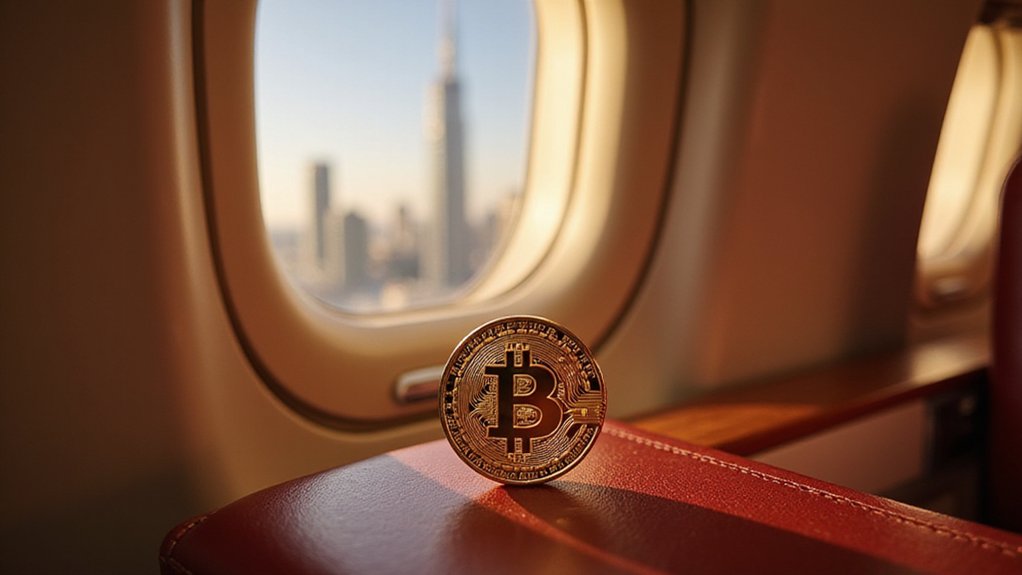The aviation industry‘s flirtation with cryptocurrency has taken a decidedly serious turn, as Emirates—the Dubai-based carrier that has never been particularly shy about embracing technological spectacle—signed a memorandum of understanding with Crypto.com on July 9, 2025, to integrate Bitcoin payments into its booking system.
The presence of Emirates Chairman Sheikh Ahmed bin Saeed Al Maktoum at the signing ceremony suggests this isn’t merely another marketing stunt designed to capture headlines in the crypto press.
This partnership, slated for full implementation in 2026, positions Emirates as the largest airline to officially accept Bitcoin payments, joining the rather exclusive club currently populated by Latvia’s airBaltic and a handful of other forward-thinking carriers.
The integration will leverage Crypto.com Pay‘s existing infrastructure, allowing customers to purchase flights using Bitcoin and potentially other digital currencies—though the airline has remained diplomatically vague about which additional cryptocurrencies might make the cut.
The timing appears strategically calculated. Dubai’s ambitions to establish itself as a global crypto hub have been well-documented, and Emirates’ move aligns perfectly with this broader financial innovation narrative.
The airline’s stated goal of attracting younger, tech-savvy customers who favor digital currencies reflects a pragmatic recognition that consumer preferences are evolving faster than traditional payment processors might prefer. The partnership will also drive promotional marketing campaigns between Emirates and Crypto.com to create awareness of the new payment solution.
Interestingly, Emirates passengers aren’t entirely bereft of crypto payment options in the interim. Third-party platforms like Alternative Airlines already facilitate Bitcoin transactions for Emirates bookings, accepting over 100 cryptocurrencies including Ethereum, Tether, Litecoin, and Ripple.
Emirates passengers already enjoy crypto payment workarounds through third-party platforms accepting over 100 digital currencies.
This existing infrastructure suggests there’s demonstrable demand for such services—hardly surprising given that American Airlines, Singapore Airlines, and Lufthansa have similarly embraced indirect crypto payments. The appeal of Bitcoin payments extends beyond mere novelty, as blockchain technology provides higher security by protecting personal information during transactions compared to traditional payment methods.
The 2026 rollout timeline allows Emirates to focus on security and compliance standards, two considerations that have historically made traditional financial institutions rather skittish about cryptocurrency integration. The implementation will rely on digital signatures and consensus mechanisms to ensure transaction authenticity and prevent double-spending across the airline’s payment infrastructure.
Whether this initiative represents genuine payment innovation or simply another chapter in the ongoing crypto adoption theater remains to be seen, though Emirates’ commitment to maintaining rigorous security protocols suggests they’re taking this endeavor seriously enough to avoid the regulatory headaches that have plagued less cautious crypto adopters.









